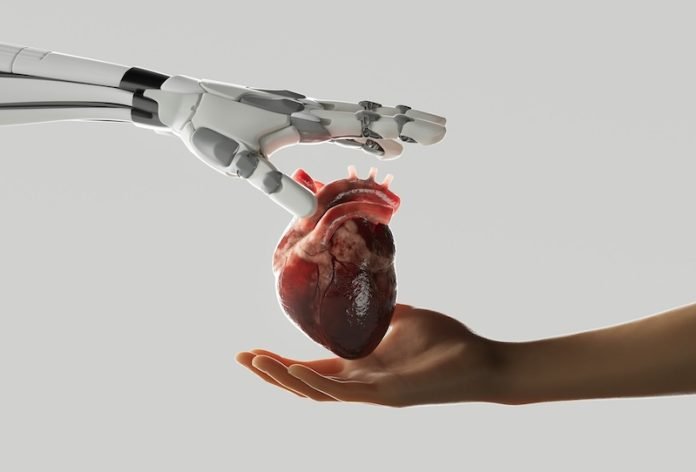
Heart disease remains a leading cause of death worldwide, but advances in technology, particularly artificial intelligence (AI), are transforming how we detect and manage this pervasive health issue.
AI’s role in heart disease diagnosis is expanding, offering more precise, faster, and potentially life-saving insights into heart health.
This review explores how AI is shaping the future of cardiac care, presented in straightforward language for easy understanding.
Artificial intelligence, in the context of heart disease, involves using computer systems to perform tasks that usually require human intelligence.
These tasks include interpreting medical images, recognizing patterns in data, and even predicting which patients are at higher risk of developing heart disease.
One of the most significant applications of AI in cardiology is in the analysis of medical imaging. Techniques like echocardiograms, MRI scans, and CT scans are essential for diagnosing heart disease. AI can analyze these images more quickly and accurately than ever before.
For instance, AI programs have been trained to detect abnormalities in heart function and structure that might be subtle and challenging for the human eye to catch.
This ability was highlighted in a study published in the Journal of Cardiovascular Translational Research, where AI could identify signs of heart failure from echocardiograms with a high level of accuracy.
AI is also pivotal in electrocardiograms (ECGs), which measure the electrical activity of the heart. Traditionally, analyzing ECG data to detect irregularities requires highly skilled cardiologists and a lot of time.
However, AI can evaluate these patterns much faster. Research published in Nature Medicine showed an AI model that could outperform human experts in diagnosing cardiac arrhythmias from ECG data.
This kind of tool can be particularly useful in emergency settings, where rapid diagnosis is critical.
Beyond imaging and diagnostics, AI is used to predict patient outcomes. By analyzing large volumes of data from past patient records, AI can identify patterns and risk factors that might not be apparent.
This predictive capability is beneficial for preventive care, as it can help identify at-risk patients before they show symptoms of heart disease.
A study in the Journal of the American Heart Association reported that AI could predict the risk of death in patients with heart disease more accurately than traditional methods.
AI’s role doesn’t stop at diagnosis and prediction. It’s also being used to monitor heart disease patients in real-time. Wearable technology equipped with AI can track heart rate, activity levels, and other physiological data continuously.
This data can alert patients and doctors to potential problems before they require emergency care. For example, smartwatches now come with features that can detect heart rate irregularities and suggest the wearer seek medical advice.
However, while AI offers remarkable benefits, there are challenges to consider. The accuracy of AI tools depends on the data they are trained with.
If the data is not diverse, the AI’s diagnostic performance could be less accurate across different populations. Also, integrating AI into daily medical practice involves overcoming regulatory, ethical, and economic hurdles.
In conclusion, AI is a powerful tool in the fight against heart disease, providing innovative ways to diagnose, predict, and monitor this common condition.
As technology advances, AI’s role in cardiology is set to become more prominent, potentially leading to better outcomes for patients with heart disease.
Embracing these technological advancements, while carefully addressing the associated challenges, could revolutionize heart health care for millions of people globally.
If you care about heart health, please read studies that vitamin K helps cut heart disease risk by a third, and a year of exercise reversed worrisome heart failure.
For more information about heart health, please see recent studies about supplements that could help prevent heart disease, stroke, and results showing this food ingredient may strongly increase heart disease death risk.
Copyright © 2024 Knowridge Science Report. All rights reserved.



